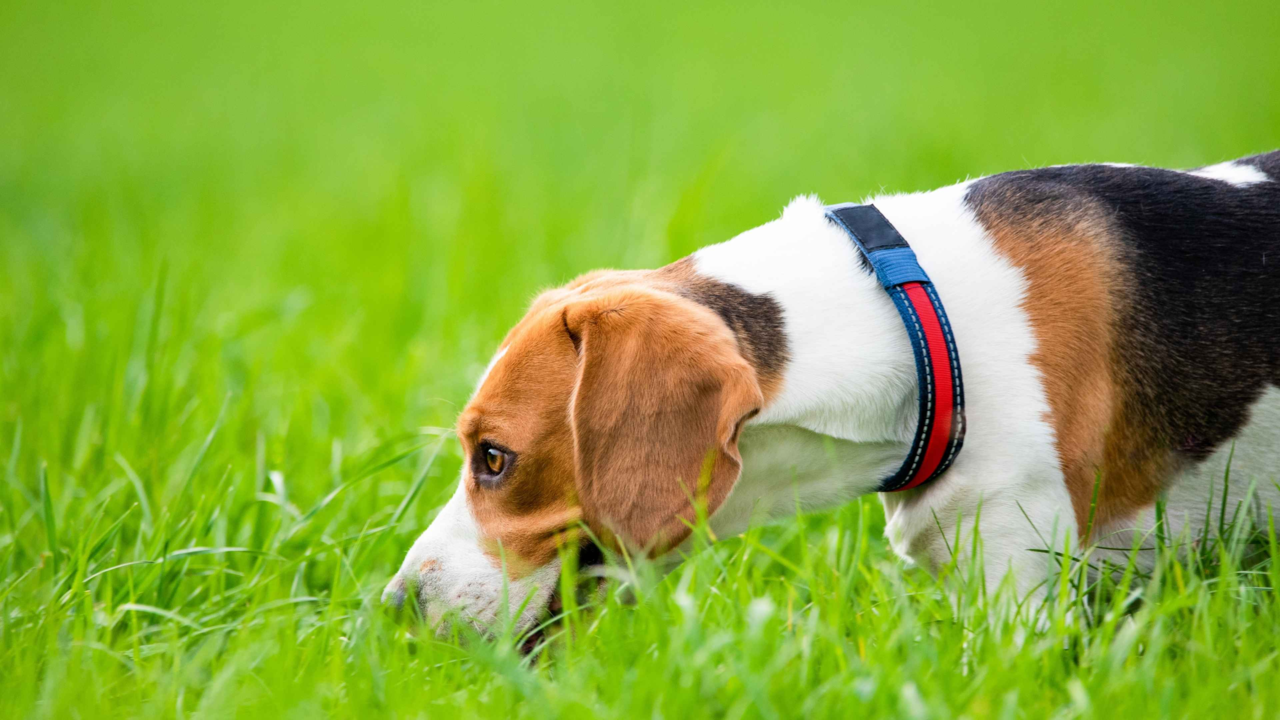Has your dog taken a sudden interest in grazing on grass during walks or backyard playtime? If you’re wondering, “why do dogs eat grass?” you’re not alone. While it can seem strange, this behaviour is actually quite common among dogs in New Zealand and around the world. In this guide, we’ll explore the reasons behind grass-eating, when it could indicate a health concern, and how to safely manage it with expert-backed solutions.
Is It Normal For Dogs To Eat Grass?
Yes, in most cases, grass-eating is entirely normal. Veterinary studies suggest that over 70% of dogs occasionally munch on grass without any ill effects. This behaviour is scientifically known as “pica,” which involves eating things that aren’t typically considered food. For many dogs, grass simply seems to satisfy a natural urge or interest, rather than indicating any serious issue.
It’s worth noting that dogs may enjoy grass for the texture or taste, especially when it's fresh and wet after a shower. Others may just be seeking some sensory stimulation. If your pup occasionally eats grass but isn't vomiting, shows no signs of discomfort, and is otherwise happy and healthy, it’s likely nothing to worry about.
Possible Reasons Dogs Eat Grass
There are several theories behind why dogs eat grass. Understanding these can help NZ dog parents better respond to the behaviour:
- Nutritional deficiency: Dogs lacking fibre or specific nutrients may turn to grass. Ensure your dog is eating balanced meals. If you're unsure, explore premium dog food options for complete nutrition.
- Upset stomach: Some dogs eat grass to induce vomiting, although research shows this is not always effective or common.
- Anxiety or boredom: Grazing may be a way to self-soothe. Providing calming supplements for anxious dogs or enrichment toys might help redirect the behaviour.
- Instinctual behaviour: Dogs' wild ancestors ate plant material found in prey stomachs, so grass consumption may tap into that evolutionary instinct.
When Grass-Eating Could Be A Concern
While grass-grazing usually isn’t harmful, there are instances where it could indicate a problem:
- Frequent vomiting after eating grass
- Sudden change in eating habits
- Lethargy, diarrhoea, or signs of discomfort
- Consumption of chemically treated grass
If your dog repeatedly eats grass and vomits, or shows other signs of distress, see your vet to rule out gastrointestinal issues or other health concerns. Certain nutrient deficiencies can sometimes be corrected with dog health supplements tailored for digestion and wellness.
How To Discourage Grass-Eating Safely
If your dog’s grass-eating habit bothers you, here are several strategies that could help reduce or redirect the behaviour:
- Improve diet: Your dog might benefit from switching to a higher-fibre formula. Check out our selection of dry dog food options or nutrient-rich wet food varieties.
- Offer healthy alternatives: Replace the urge to chew grass with tasty dog treats and chew toys that satisfy natural tendencies.
- Provide enrichment: Dogs often eat grass out of boredom. Keep them engaged with interactive pet toys or training activities.
- Monitor backyard access: Supervise your dog outside and block access to chemically treated areas or toxic garden plants.
Supporting Your Dog's Digestive & Mental Health
Ensuring your dog’s overall wellness is key to reducing grass-eating. Some useful steps include:
- Regular vet check-ups: Help identify underlying digestive or behavioural issues early.
- Daily routine and exercise: Reduce anxiety and boredom by promoting a structured schedule and sufficient physical activity.
- Hydration and digestion: Support gut health with products from our pet hydration collection for optimal digestive flow.
- Explore new solutions: Check out our latest pet products to discover innovative nutritional and behavioural tools for your dog.
Should You Be Concerned If Your Dog Eats Grass?
In most cases, grass-eating is a normal and harmless behaviour for dogs. However, if it becomes persistent, leads to vomiting, or seems linked to anxiety or nutrient deficiency, it’s important to take steps to support your pup’s overall health. By offering balanced nutrition, proper mental stimulation, and the right supplements, Kiwi dog parents can ensure their furry friends thrive.
Looking to improve your dog’s diet or manage stress-related behaviours? Explore Petdirect’s trusted range of top-rated essentials for nutrition, digestion, and wellbeing. Because a healthy dog is a happy dog!
